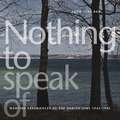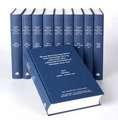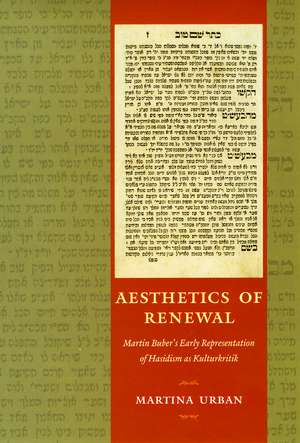Aesthetics of Renewal: Martin Buber's Early Representation of Hasidism as Kulturkritik: Emersion: Emergent Village resources for communities of faith
Autor Martina Urbanen Limba Engleză Hardback – 6 noi 2008
Martin Buber’s embrace of Hasidism at the start of the twentieth century was instrumental to the revival of this popular form of Jewish mysticism. Hoping to instigate a Jewish cultural and spiritual renaissance, he published a series of anthologies of Hasidic teachings written in German to introduce the tradition to a wide audience. In Aesthetics of Renewal, Martina Urban closely analyzes Buber’s writings and sources to explore his interpretation of Hasidic spirituality as a form of cultural criticism.
For Buber, Hasidic legends and teachings were not a static, canonical body of knowledge, but were dynamic and open to continuous reinterpretation. Urban argues that this representation of Hasidism was essential to the Zionist effort to restore a sense of unity across the Jewish diaspora as purely religious traditions weakened—and that Buber’s anthologies in turn played a vital part in the broad movement to use cultural memory as a means to reconstruct a collective identity for Jews. As Urban unravels the rich layers of Buber’s vision of Hasidism in this insightful book, he emerges as one of the preeminent thinkers on the place of religion in modern culture.
Din seria Emersion: Emergent Village resources for communities of faith
-
 Preț: 144.99 lei
Preț: 144.99 lei -
 Preț: 94.22 lei
Preț: 94.22 lei -
 Preț: 133.99 lei
Preț: 133.99 lei -
 Preț: 146.50 lei
Preț: 146.50 lei -
 Preț: 126.25 lei
Preț: 126.25 lei -
 Preț: 179.93 lei
Preț: 179.93 lei -
 Preț: 307.53 lei
Preț: 307.53 lei -
 Preț: 138.81 lei
Preț: 138.81 lei -
 Preț: 208.31 lei
Preț: 208.31 lei - 18%
 Preț: 348.59 lei
Preț: 348.59 lei -
 Preț: 156.84 lei
Preț: 156.84 lei -
 Preț: 302.76 lei
Preț: 302.76 lei -
 Preț: 273.93 lei
Preț: 273.93 lei -
 Preț: 176.35 lei
Preț: 176.35 lei - 9%
 Preț: 352.77 lei
Preț: 352.77 lei -
 Preț: 548.71 lei
Preț: 548.71 lei -
 Preț: 310.21 lei
Preț: 310.21 lei - 8%
 Preț: 311.68 lei
Preț: 311.68 lei -
 Preț: 106.35 lei
Preț: 106.35 lei - 8%
 Preț: 360.28 lei
Preț: 360.28 lei -
 Preț: 209.69 lei
Preț: 209.69 lei -
 Preț: 176.35 lei
Preț: 176.35 lei - 6%
 Preț: 324.95 lei
Preț: 324.95 lei -
 Preț: 101.43 lei
Preț: 101.43 lei -
 Preț: 144.80 lei
Preț: 144.80 lei -
 Preț: 185.37 lei
Preț: 185.37 lei -
 Preț: 163.52 lei
Preț: 163.52 lei - 12%
 Preț: 251.95 lei
Preț: 251.95 lei -
 Preț: 182.98 lei
Preț: 182.98 lei - 18%
 Preț: 2261.34 lei
Preț: 2261.34 lei -
 Preț: 167.85 lei
Preț: 167.85 lei -
 Preț: 160.63 lei
Preț: 160.63 lei -
 Preț: 115.82 lei
Preț: 115.82 lei -
 Preț: 279.55 lei
Preț: 279.55 lei -
 Preț: 161.12 lei
Preț: 161.12 lei -
 Preț: 115.53 lei
Preț: 115.53 lei - 12%
 Preț: 290.56 lei
Preț: 290.56 lei -
 Preț: 183.89 lei
Preț: 183.89 lei - 17%
 Preț: 423.14 lei
Preț: 423.14 lei - 9%
 Preț: 352.50 lei
Preț: 352.50 lei -
 Preț: 147.26 lei
Preț: 147.26 lei - 8%
 Preț: 563.24 lei
Preț: 563.24 lei -
 Preț: 229.92 lei
Preț: 229.92 lei - 8%
 Preț: 346.31 lei
Preț: 346.31 lei -
 Preț: 216.08 lei
Preț: 216.08 lei -
 Preț: 215.51 lei
Preț: 215.51 lei - 9%
 Preț: 353.24 lei
Preț: 353.24 lei -
 Preț: 140.57 lei
Preț: 140.57 lei -
 Preț: 92.35 lei
Preț: 92.35 lei - 8%
 Preț: 564.99 lei
Preț: 564.99 lei
Preț: 239.20 lei
Preț vechi: 281.82 lei
-15% Nou
Puncte Express: 359
Preț estimativ în valută:
45.78€ • 47.67$ • 38.69£
45.78€ • 47.67$ • 38.69£
Carte indisponibilă temporar
Doresc să fiu notificat când acest titlu va fi disponibil:
Se trimite...
Preluare comenzi: 021 569.72.76
Specificații
ISBN-13: 9780226842707
ISBN-10: 0226842703
Pagini: 240
Dimensiuni: 152 x 229 x 23 mm
Greutate: 0.5 kg
Ediția:New.
Editura: University of Chicago Press
Colecția University of Chicago Press
Seria Emersion: Emergent Village resources for communities of faith
ISBN-10: 0226842703
Pagini: 240
Dimensiuni: 152 x 229 x 23 mm
Greutate: 0.5 kg
Ediția:New.
Editura: University of Chicago Press
Colecția University of Chicago Press
Seria Emersion: Emergent Village resources for communities of faith
Notă biografică
Martina Urban is assistant professor in the Department of Religious Studies at Vanderbilt University.
Cuprins
Acknowledgements
Introduction
1. Buber's Hermeneutic Horizon
2. The Anthology and the Jewish Renaissance
An Attempt at Definition
Anthology as Jewish Form
The Jewish Library Reconfigured
Buber's Anthologies and German Romantic Nationalism
3. Zionist Anthologies
Moderate Modernism: Hayyim Nahman Bialik's "Ingathering"
Between Eastern Hebrew Nationalism and Western Jewish Revival
Berdyczewski's Sefer Hasidism
4. In Search of Collaborators
The Role of Marcus Ehrenpreis
Micha Josef Berdyczewski: An Ambivalent Collaborator
5. The Gallician Circle of Elusive Collaborators
Shmuel Yosef Agnon: An Anthology Shelved
Mordekhai Ben-Yehezekel: The Folklorist as Anthologist
Samuel Abba Horodezky: A Silent Collaborator
6. Ahad Ha'am's Theory of Culture Revised
Language and the Jewish Renaissance
7. Sprachkritik: The Crisis of Perception
8. Jewish Culture: Between Metaphysical Aesthetics and Lebensphilosophie
9. A Phenomenology of Hasidic Mysticism
Preparing the Readers: Basic Religious Ideas
Hitlahavut—On Ecstatic Immediacy
'Avodah—On Mystical Self-Sacrifice
Kawwanah—On Redemptive Devotion
Shiflut—On Relation
Conclusion
Appendix: Buber's Sources for Die Legende des Baalschem
Notes
Bibliography
index
Introduction
1. Buber's Hermeneutic Horizon
2. The Anthology and the Jewish Renaissance
An Attempt at Definition
Anthology as Jewish Form
The Jewish Library Reconfigured
Buber's Anthologies and German Romantic Nationalism
3. Zionist Anthologies
Moderate Modernism: Hayyim Nahman Bialik's "Ingathering"
Between Eastern Hebrew Nationalism and Western Jewish Revival
Berdyczewski's Sefer Hasidism
4. In Search of Collaborators
The Role of Marcus Ehrenpreis
Micha Josef Berdyczewski: An Ambivalent Collaborator
5. The Gallician Circle of Elusive Collaborators
Shmuel Yosef Agnon: An Anthology Shelved
Mordekhai Ben-Yehezekel: The Folklorist as Anthologist
Samuel Abba Horodezky: A Silent Collaborator
6. Ahad Ha'am's Theory of Culture Revised
Language and the Jewish Renaissance
7. Sprachkritik: The Crisis of Perception
8. Jewish Culture: Between Metaphysical Aesthetics and Lebensphilosophie
9. A Phenomenology of Hasidic Mysticism
Preparing the Readers: Basic Religious Ideas
Hitlahavut—On Ecstatic Immediacy
'Avodah—On Mystical Self-Sacrifice
Kawwanah—On Redemptive Devotion
Shiflut—On Relation
Conclusion
Appendix: Buber's Sources for Die Legende des Baalschem
Notes
Bibliography
index
Recenzii
“Urban’s superb study combines remarkable erudition with refined interpretative skills in an innovative contribution to our understanding of the often elusive role of Hasidism in Martin Buber’s thought. Because her focus on Buber always points towards an evocative periphery, her book opens a field of larger relevance that will engage readers far beyond the circle of Buber scholars.”
“Martina Urban’s Aesthetics of Renewal is an excellent work and certainly one of the most important books on Buber to appear in recent years. By bringing together Buber’s writings on Hasidism and Zionism, Urban allows Buber’s critical voice to speak once again in contemporary cultural conversations.”
“Martina Urban’s lucid and erudite study situates Martin Buber’s collections of Hasidic tales and teachings within the larger project of modern Jewish anthology-making and its effort to retrieve and revitalize Jewish spirituality. This book fills a lacuna in our knowledge of Jewish thought and literature in modernity, and makes an important, indispensable contribution to our understanding of modern Jewish theology as cultural criticism.”
"Buber may yet teach us something about a Jewish vitality that can be renewed without searching for the authenticity of something naively essentialized, and it will be thanks to Urban if this possibility can be reconsidered as modeled by Buber."
"Urban's Aesthetics of Renewal has done an invaluable service to scholars not only of Buber but of the intellectual exchanges that defined fin-de-siecle culture, Zionism in its most creative phase, and modernism with all its deeply entrenched contradictions and inner dialectic. . . . Her book is lucid and accessible, well organized and impressively learned."
"Urban convincingly frames the esthetics of Jewish renewal as anti-metaphysical and anti-historical discourse ala Nietzsche, with Hasidism acting as the vital bridge between Apollonian form-appearance-illusion and Dionysian ecstatic experience. . . . Buber's early hasidica is brought into deep conversation with the German culture and intellectual currents that were contemporary to him."
